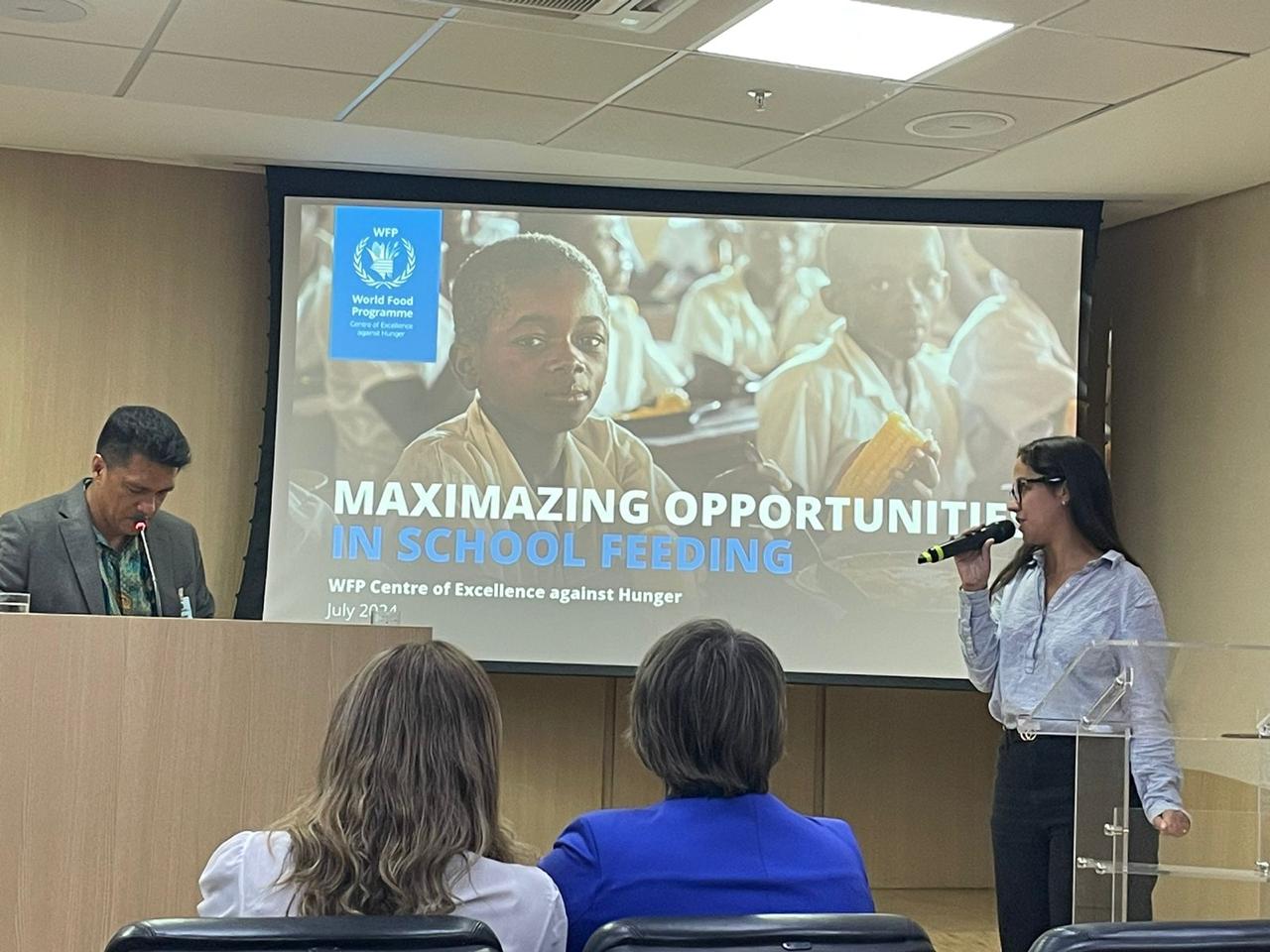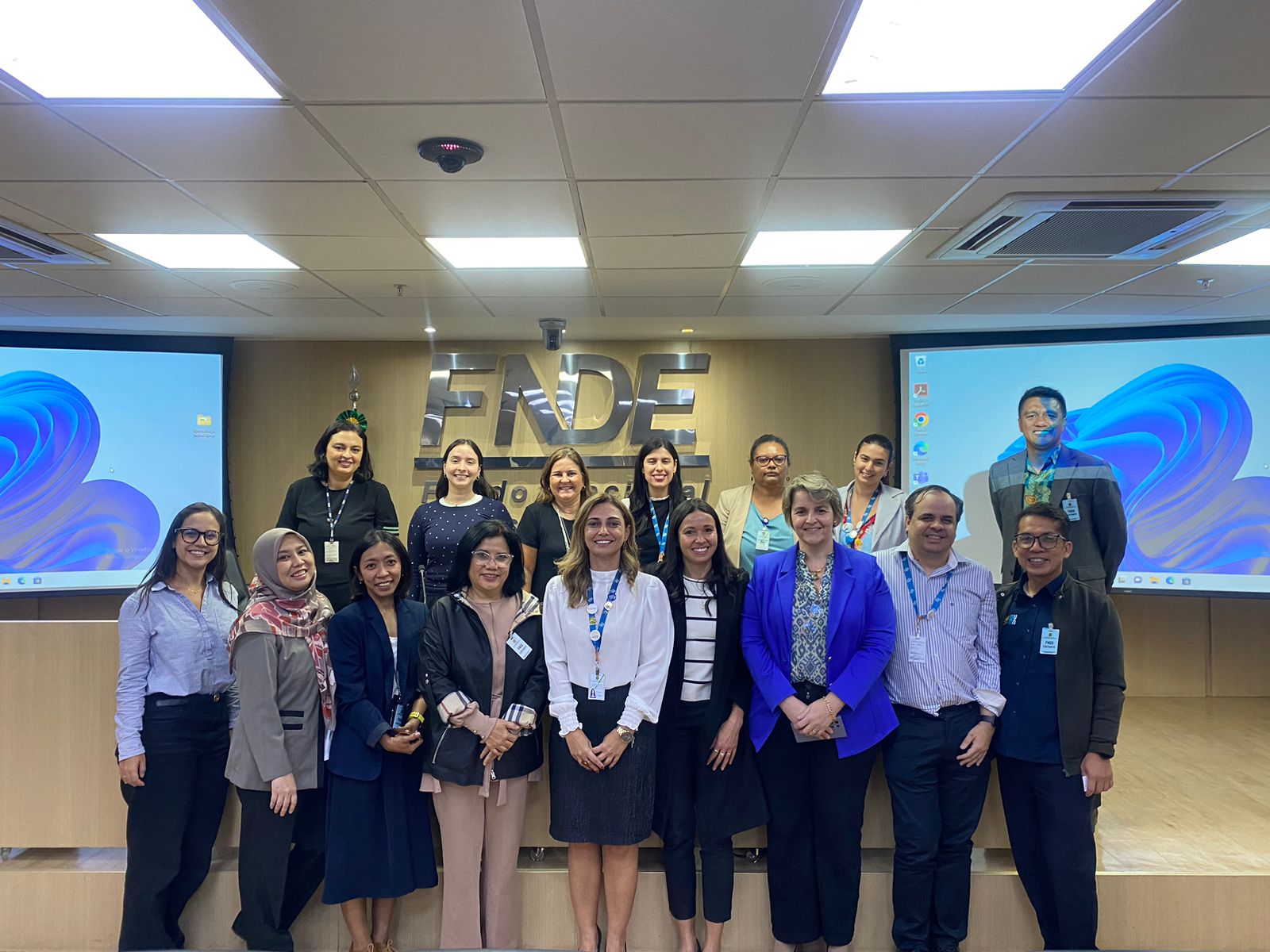
Between July 14 and 20, a delegation from the Ministry of State and the National Logistics Agency of the Republic of Indonesia is on an official trip to Brazil to learn more about the National School Feeding Programme (PNAE) and government programmes at state and municipal level that provide free or low-cost meals.
Last Tuesday (16), teams from the World Food Programme (WFP) Centre of Excellence against Hunger in Brazil; the General Coordination of the PNAE, of the National Education Development Fund (FNDE, in Portuguese); and the Brazilian Cooperation Agency (ABC, in Portuguese), linked to the Brazilian Ministry of Foreign Affairs, met with the Indonesian delegation at the FNDE headquarters in Brasilia to present how the school feeding policy is implemented in Brazil. The meeting covered aspects of legislation, financing, the division of tasks and costs between the federal, state and municipal authorities, nutritional aspects and went into more detail about the supply of food for the programme and the participation of civil society.
The next Indonesian government intends to implement a national school feeding programme for its population, and to this end it is open to learning from countries that already have such a policy in place, such as Brazil.

The WFP Centre of Excellence has more than 13 years of experience with Triangular and South-South Cooperation, connecting the Brazilian government with countries from the Global South that want to learn more about Brazil’s school feeding experience. For Policy and Program Officer Leticia do Valle, the visit is an important step to inspire Indonesia and for the country to learn more about how the Brazilian PNAE works. ‘With the technical support of the Centre of Excellence, 30 partner countries have already increased their investments in national school feeding programmes,’ said Leticia.
During the presentation of the Centre of Excellence, some facts were also mentioned about the School Feeding Coalition, in which the WFP acts as secretariat. Since 2023, Brazil has been co-chair of the Coalition alongside France and Finland. The alliance currently has 98 member countries, 47 of which have submitted pledges to achieve the agreement’s objectives. Indonesia is not yet a member of the Coalition, and its accession is a priority within Indonesia’s national ambitions for school feeding.




